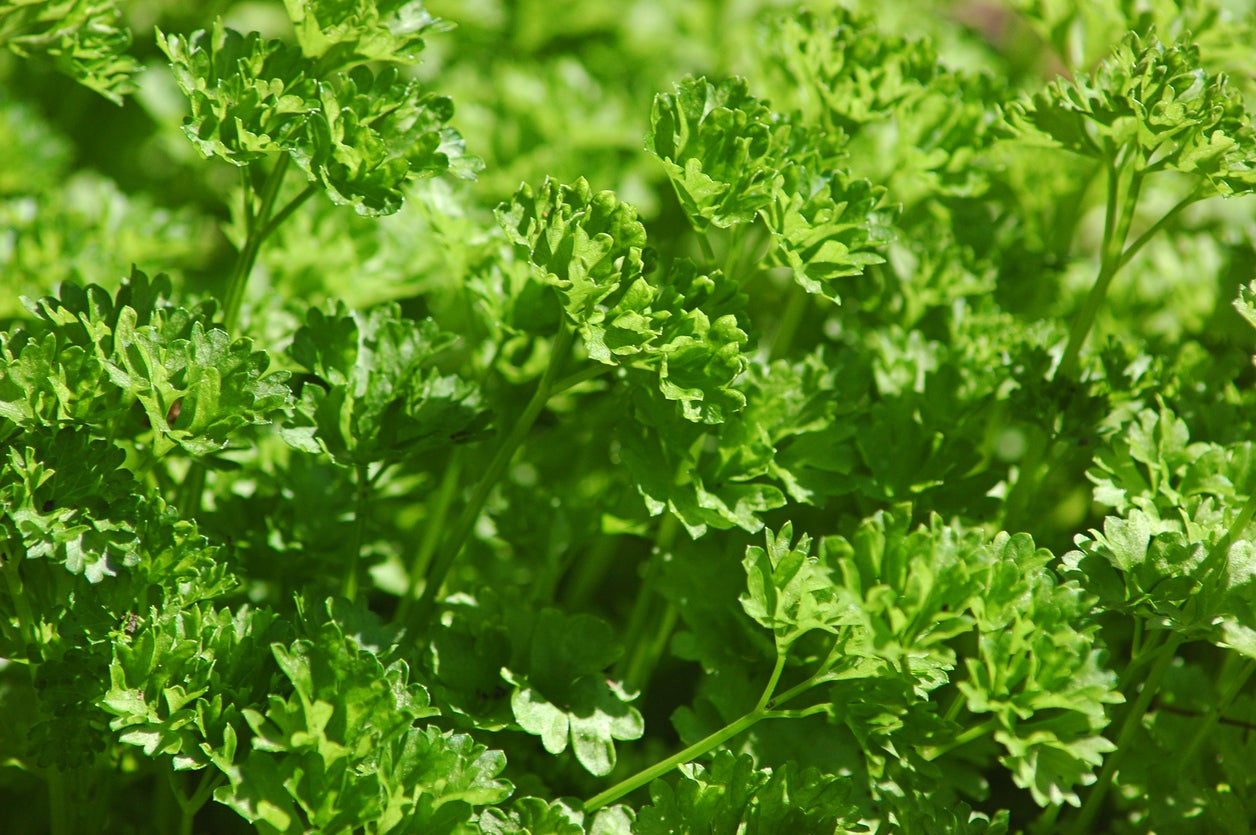Curly Parsley Uses: What To Do With Curly Parsley Plants


Curly parsley grows in most every herb garden, often along with flat-leaved parsley. Many recipes only call for parsley. So, what to do? Let’s take a look at the differences in parsley varieties and learn more about curly parsley plant care and uses.
What is Curly Parsley?
This is an easy-to-grow type of parsley with round, curly leaves. The taste is stronger than that of the flat-leaf type and not too similar. Curly parsley uses include garnishing plates, often along with a fruit slice. You may also chop it finely and use as the parsley called for in those recipes, although the round curly leaves require more effort to wash than the flat-leaved type.
This is part of the reason restaurants use flat parsley, as well as for its milder taste. The home gardener can easily grow both types of parsley and, depending on the recipe, decide whether to use curly parsley vs. flat parsley. You might get creative and use both.
How to Use Curled Parsley
Using parsley in a dish along with other herbs basically includes it as an additional layer of flavor that complements other herbs. Since the taste is different between the two parsleys, the final flavor may be somewhat different.
Experiment with the two herbs and see which flavor you prefer in different dishes. Parsley also adds color to your cooking. You might want to add less, or even more. Since parsley is so easy to grow, you can always have it on hand.
Curled Parsley Plant Care
Start curled parsley from seed when temperatures warm outside. For an early crop, plant seeds indoors a few weeks before outside soil temperatures warm. You may purchase young plants that are already hardened off and plant them outside when all danger of frost is passed.
Parsley is a low-maintenance plant needing sunlight, regular water, and occasional feeding. Harvest regularly to promote growth. It is a biennial plant, meaning it grows for two years. Most treat it as an annual and allow it to be taken by frost the first year.
Sign up for the Gardening Know How newsletter today and receive a free copy of our e-book "How to Grow Delicious Tomatoes".
If you wonder what to do with curly parsley during winter, add it to an indoor winter herb garden or start a young plant in summer and pot it for indoors. If you live in an area where the plant can live outside during winter, it will continue to grow and produce. However, leaves will likely become tough and bitter during the second year.
Be sure to include this easy-care specimen in your herb gardens, both indoors and outside. It may be dried or frozen for long-lasting flavoring and garnish.

Becca Badgett was a regular contributor to Gardening Know How for ten years. Co-author of the book How to Grow an EMERGENCY Garden, Becca specializes in succulent and cactus gardening.